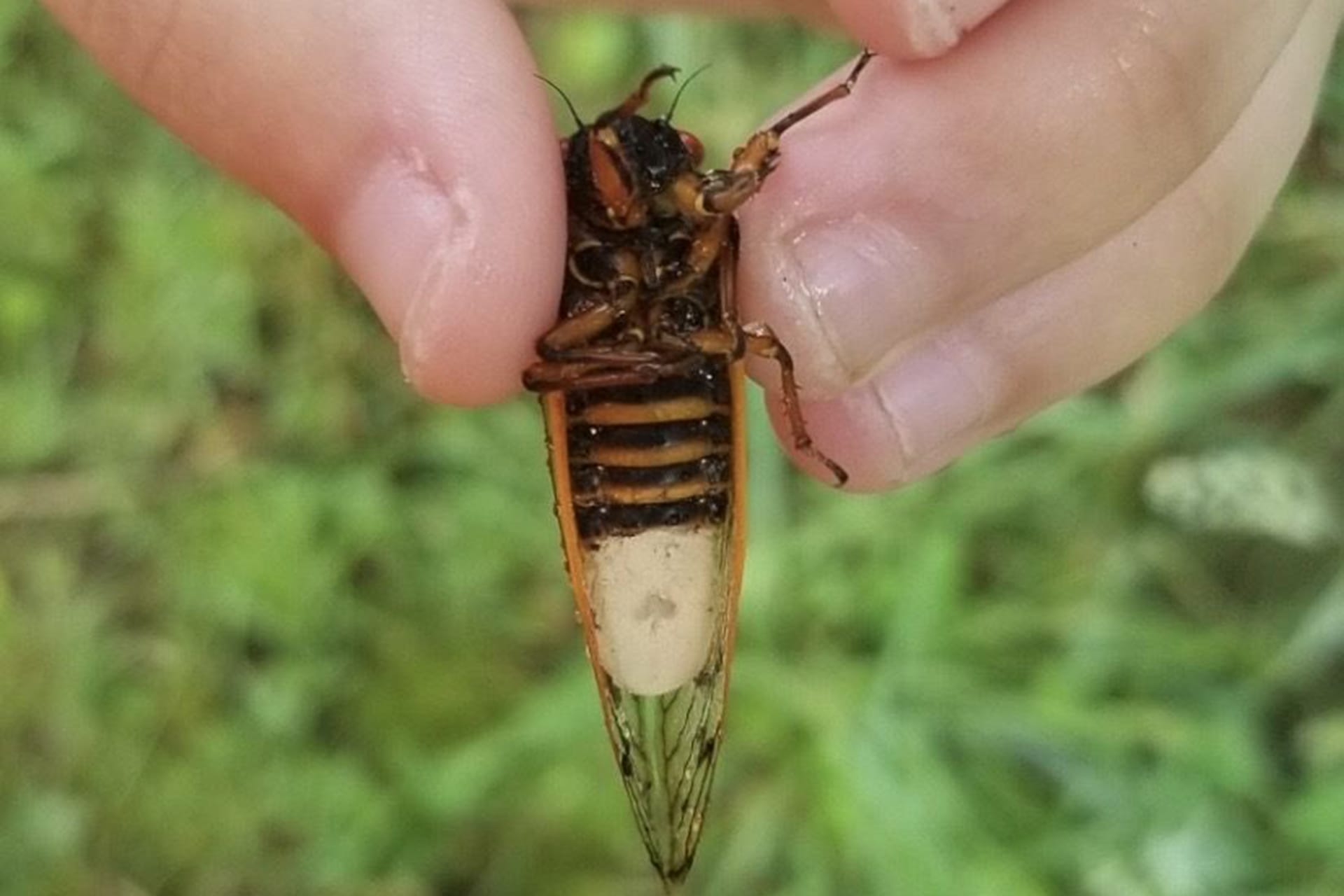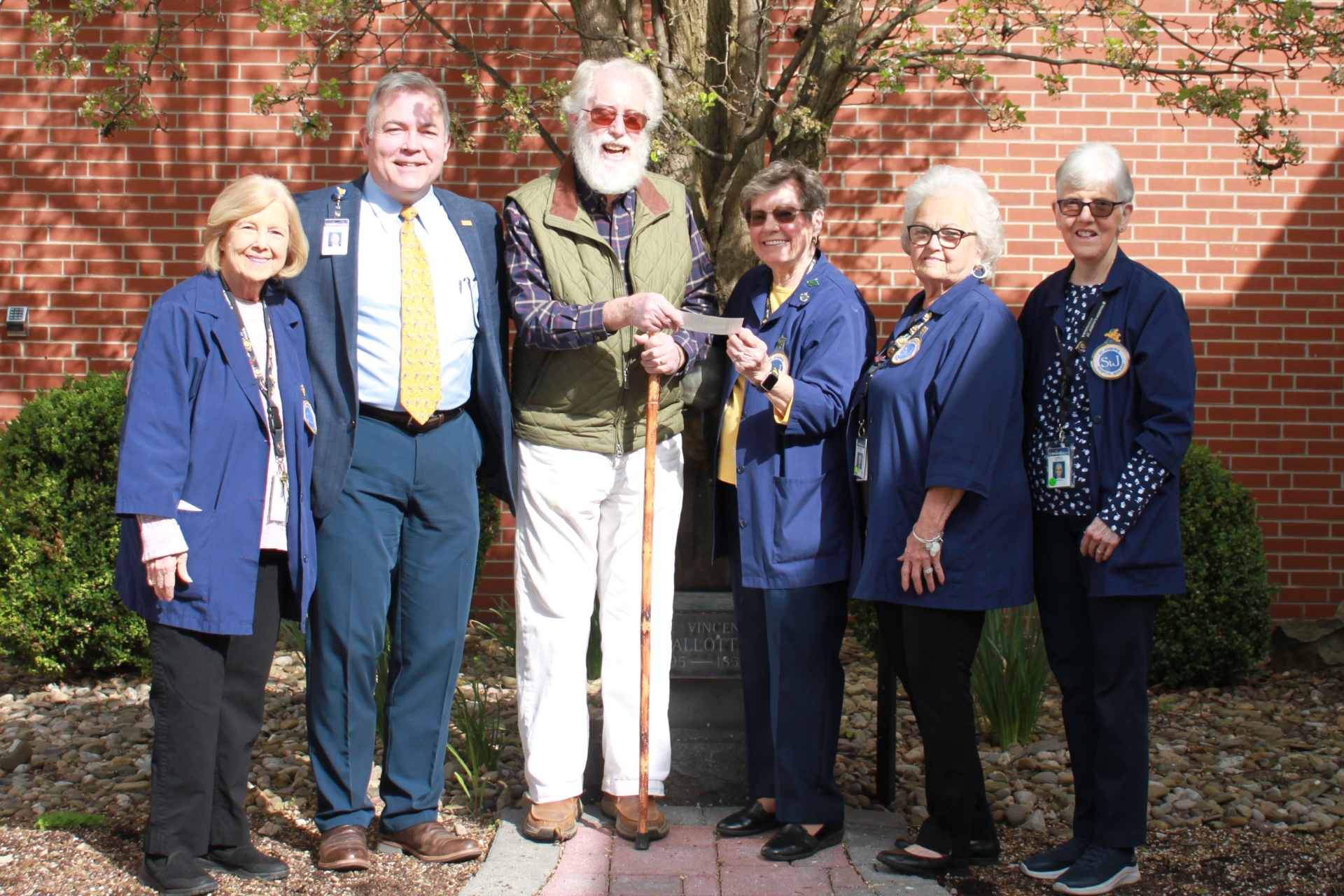Mind games aren’t exclusive to humans.
Cicadas infected with the parasitic fungus Massospora unknowingly engage in trickery with their fellow insects, resulting in effective disease transmission, according to West Virginia University-led research.
Massospora manipulates male cicadas into flicking their wings like females – a mating invitation – which tempts unsuspecting male cicadas and infects them.
It’s a recent discovery into the bizarre world of cicadas plagued by a psychedelic fungus that contains chemicals including those found in hallucinogenic mushrooms. The research, “Behavioral betrayal: How select fungal parasites enlist living insects to do their bidding,” was published in the journal PLOS Pathogens.
“Essentially, the cicadas are luring others into becoming infected because their healthy counterparts are interested in mating,” said Brian Lovett, study co-author and post-doctoral researcher with the Davis College of Agriculture, Natural Resources and Design. “The bioactive compounds may manipulate the insect to stay awake and continue to transmit the pathogen for longer.”
These actions persist amid a disturbing display of B-horror movie proportions: Massospora spores gnaw away at a cicada’s genitals, butt and abdomen, replacing them with fungal spores. Then they “wear away like an eraser on a pencil,” Lovett said.
Lovett compared the transmission of the behavior-modifying virus to rabies.
Both rabies and entomopathogenic fungi (parasites that destroy insects) enlist their living hosts for successful “active host transmission,” Lovett said.
“When you’re infected with rabies, you become aggressive, you become afraid of water and you don’t swallow,” Lovett said. “The virus is passed through saliva and all of those symptoms essentially turn you into a rabies-spreading machine where you’re more likely to bite people.
“In that sense, we’re all very familiar with active host transmission. Since we are also animals like insects, we like to think we have complete control over our decisions and we take our freewill for granted. But when these pathogens infect cicadas, it’s very clear that the pathogen is pulling the behavioral levers of the cicada to cause it to do things which are not in the interest of the cicada but is very much in the interest of the pathogen.”
Lovett’s colleague and paper co-author, Matthew Kasson, associate professor of plant pathology and mycology, helped first discover the existence of psychoactive compounds in Massospora-infected cicada fungi last year.
“Our previous literature always mentioned the strange behaviors associated with Massospora and some closely-allied fungi but what was missing was a synthesis of all this new information that had come to light,” Kasson said. “The most interesting finding is the things we still don’t know. We realized that there were some possible scenarios for infection that we had not considered before.”
Kasson noted that it’s generally accepted that cicada nymphs encounter Massospora in their 17th year as they emerge from the ground to molt into adults. But researchers also concluded that nymphs could encounter Massospora on their way down to feed on roots for 17 years.
“The fungus could more or less lay in wait inside its host for the next 17 years until something awakens it, perhaps a hormone cue, where it possibly lays dormant and asymptomatic in its cicada host,” Kasson said.
Working alongside Lovett and Kasson was doctoral student Angie Macias, who believes their research will lead to a better overall understanding of insects.
“These discoveries are not only super cool but also have a lot of potential in helping us understand insects better, and perhaps learn better ways to control pest species using fungi that manipulate host behaviors,” she said. “It is almost certain that there are undiscovered Massospora species, never mind the other AHT (active host transmission) fungi, and each of these will have developed its own intimate connection with its host’s biology.”
The team managed to research cicada broods earlier this year in southeastern West Virginia.
Lovett also explained why we’re seeing cicadas emerging again so soon.
“Different broods come out at different time spans,” he said. “There’s our periodical cicadas that come out every 13 years and there are other periodical cicadas that come out every 17 years. The timing is staggered in different states.”
And, as grotesque as an infected decaying cicada sounds, they’re generally harmless to humans, he said. They also reproduce at such a rate that the fungi’s extermination of hordes of cicadas has little effect on their overall population.
“They’re very docile,” Lovett said. “You can walk right up to one, pick it up to see if it has the fungus (a white to yellowish plug on its back end) and set it back down. They’re not a major pest in any way. They’re just a really interesting quirky insect that’s developed a bizarre lifestyle.”
Citation: “Behavioral betrayal: How select fungal parasites enlist living insects to do their bidding”
Additional resources:





















